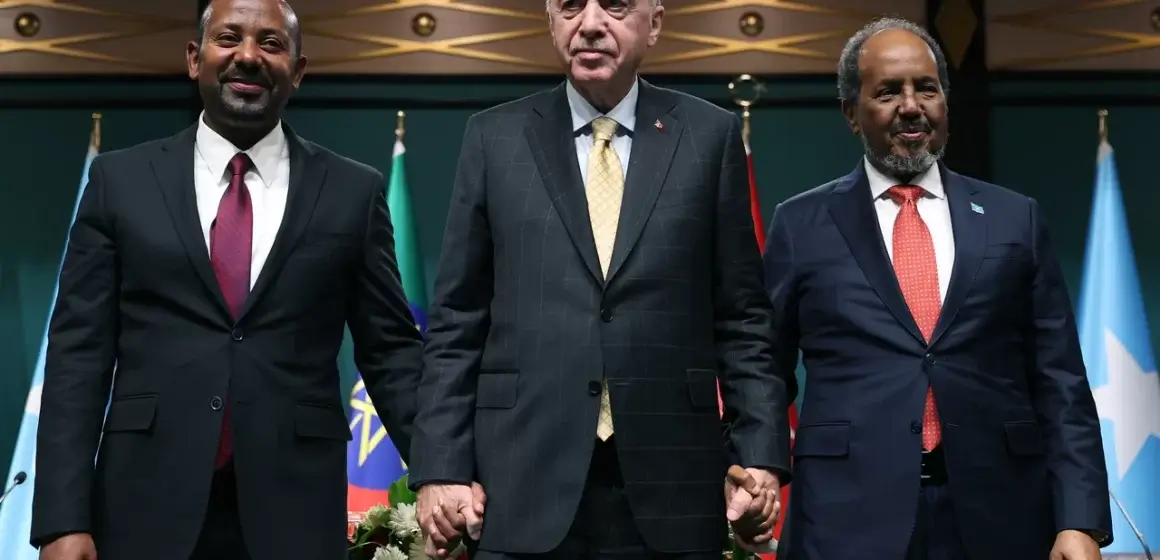|
LISTEN TO THIS THE AFRICANA VOICE ARTICLE NOW
Getting your Trinity Audio player ready...
|
Ethiopia and Somalia reached an agreement on Wednesday, December 10, 2024, to ease tensions over Ethiopia’s plans to develop a port in Somaliland, a region Somalia claims as part of its territory. The talks, mediated by Turkey, aim to end a year-long dispute that had threatened to destabilize the Horn of Africa.
The agreement, announced in Ankara, was brokered under the stewardship of Turkish President Recep Tayyip Erdogan. Speaking at a press conference with Ethiopian Prime Minister Abiy Ahmed and Somali President Hassan Sheikh Mohamud, Erdogan described the accord as a “turning point” for the region. “This agreement lays the foundation for peace and collaboration in a volatile area,” he said, lauding both leaders for their commitment to dialogue.
Tensions had flared in January 2024, when Ethiopia signed a contentious deal with Somaliland to lease a 20-kilometer stretch of coastline for the construction of a naval base. This agreement also reportedly involved Ethiopia’s implicit recognition of Somaliland’s independence—a move that sparked outrage in Somalia, which views Somaliland as part of its sovereign territory. Mogadishu branded the deal an “act of aggression,” raising fears of a wider conflict.
The discord highlighted deeper regional rivalries. Egypt, already at odds with Ethiopia over its Nile River dam project, backed Somalia diplomatically. Analysts saw Cairo’s involvement as part of its broader strategy to counter Ethiopia’s growing influence in the region.
Turkey’s involvement in brokering the talks underscored its rising geopolitical clout in the Horn of Africa. Over the years, Ankara has forged strong economic ties with Ethiopia and maintained robust security agreements with Somalia. Erdogan’s role in facilitating the agreement demonstrated Turkey’s ability to navigate the complexities of regional politics.
The Ankara Declaration, signed by both leaders, outlined steps to ease tensions, including technical negotiations scheduled for February 2025. The agreement emphasized finding mutually beneficial commercial solutions, allowing Ethiopia to access the sea while respecting Somalia’s sovereignty. It remains unclear, however, whether Ethiopia will formally abandon its earlier deal with Somaliland—a sticking point in past negotiations.
Prime Minister Abiy Ahmed, whose country is one of the world’s most populous landlocked nations, framed the deal as a step toward securing Ethiopia’s long-term economic interests. “This is not about undermining Somalia’s sovereignty,” he stated. “It is about fostering regional development and ensuring stability.”











LEAVE A COMMENT
You must be logged in to post a comment.